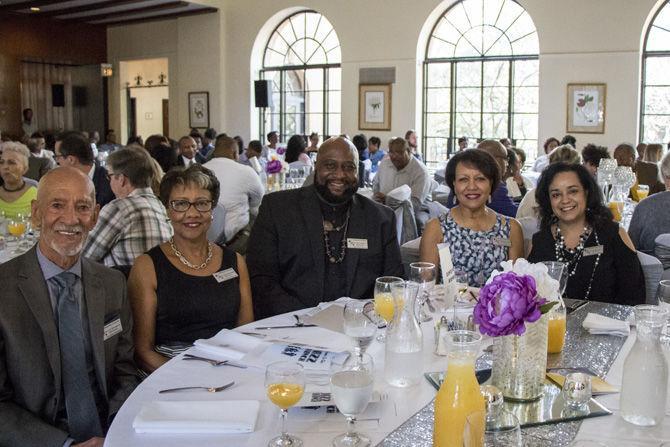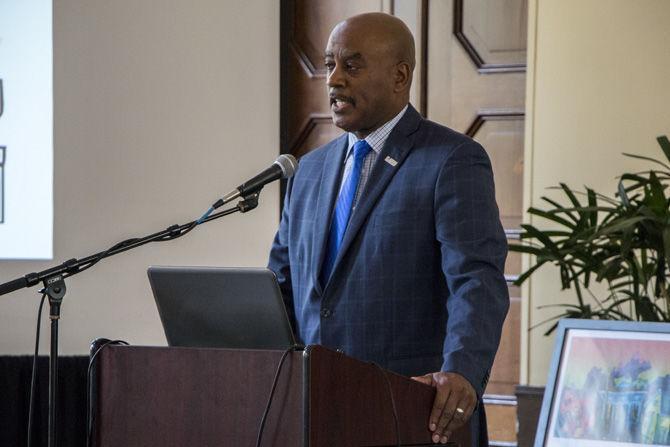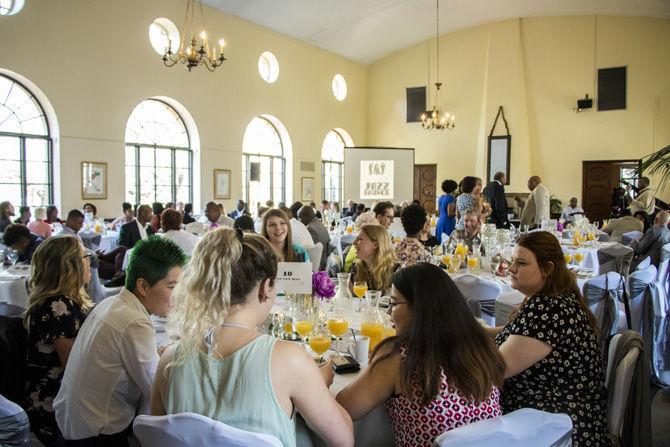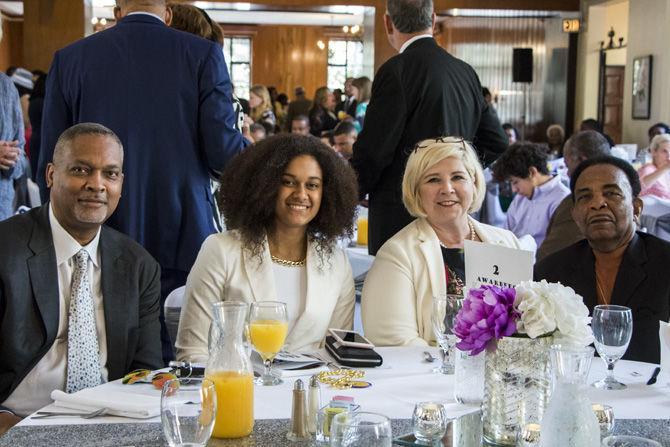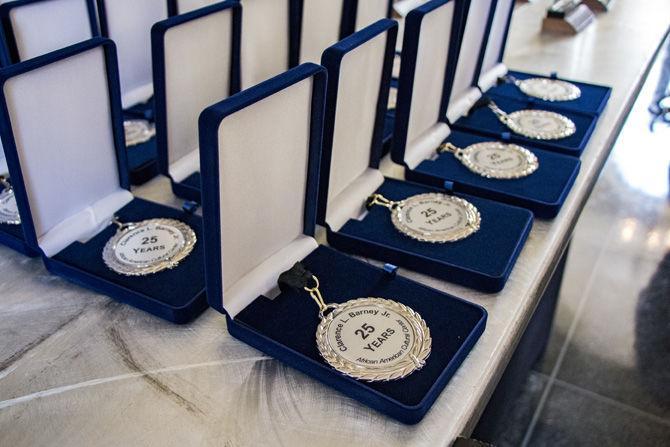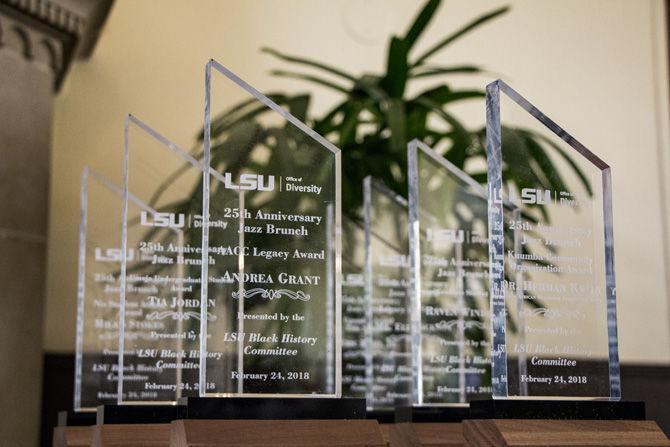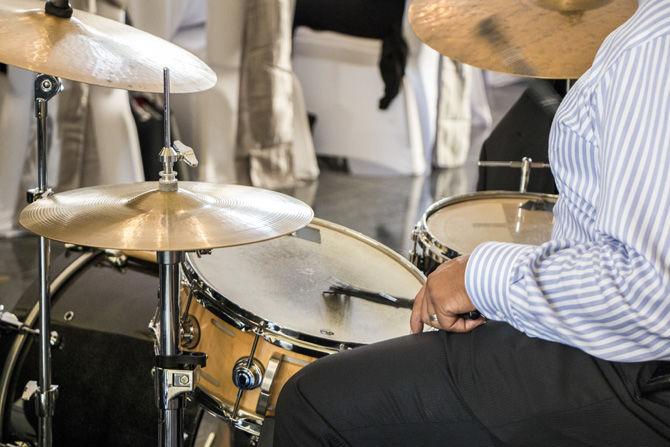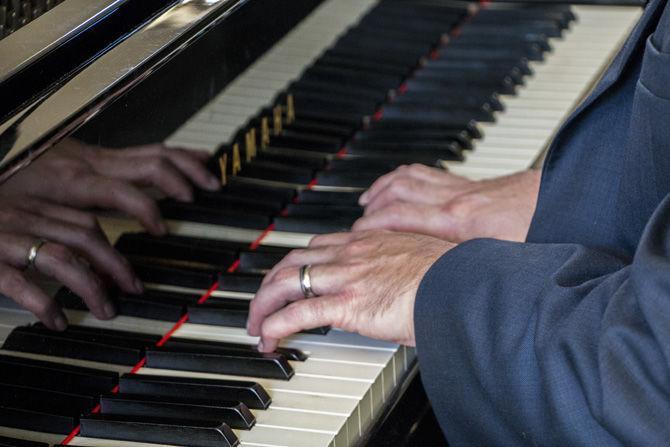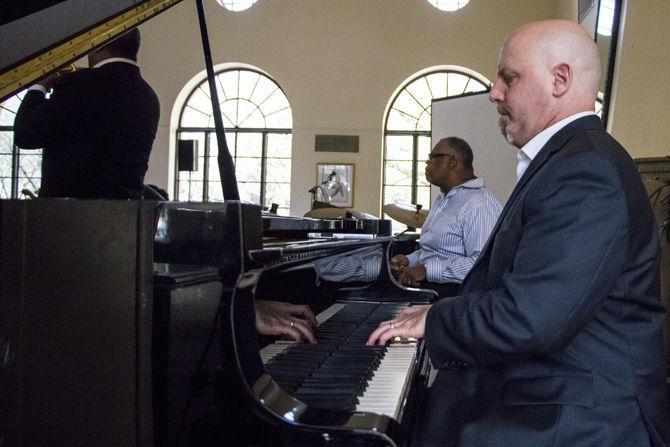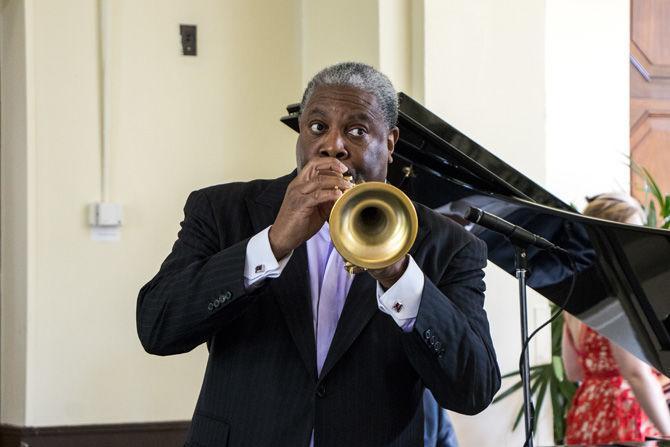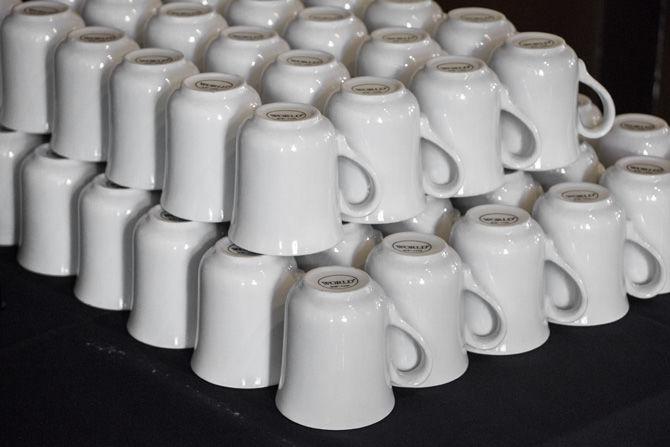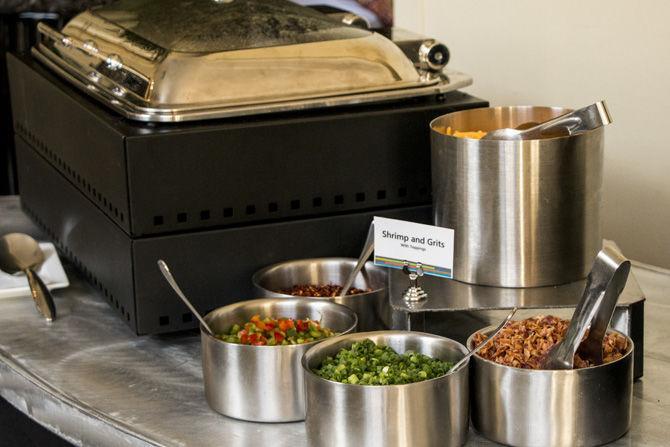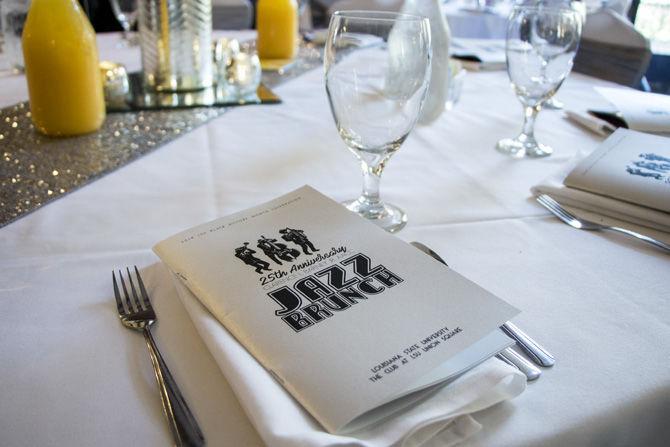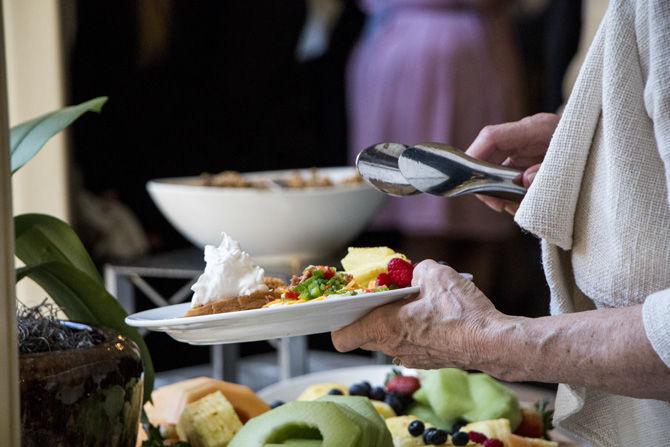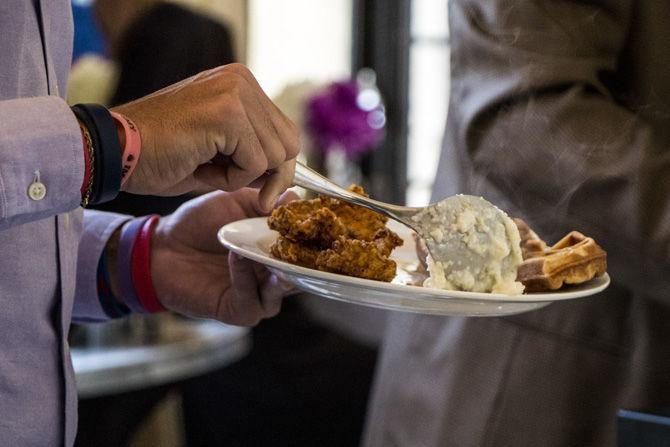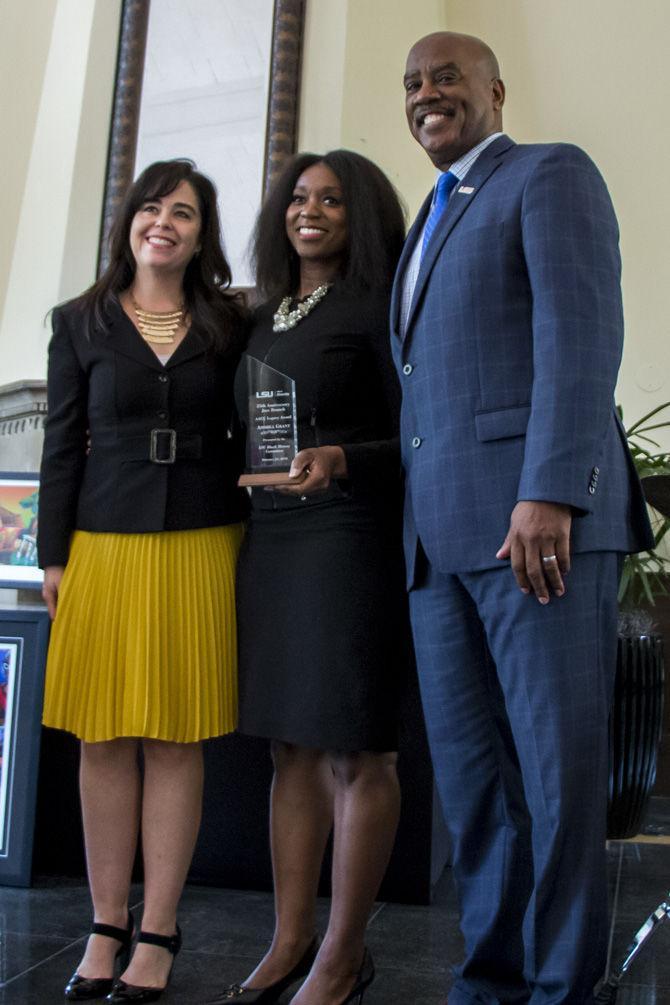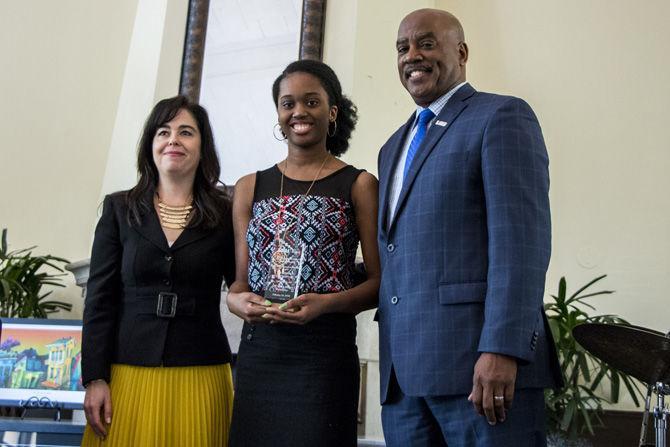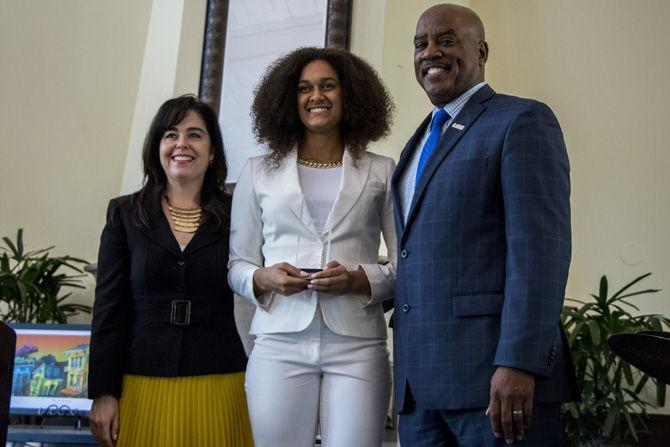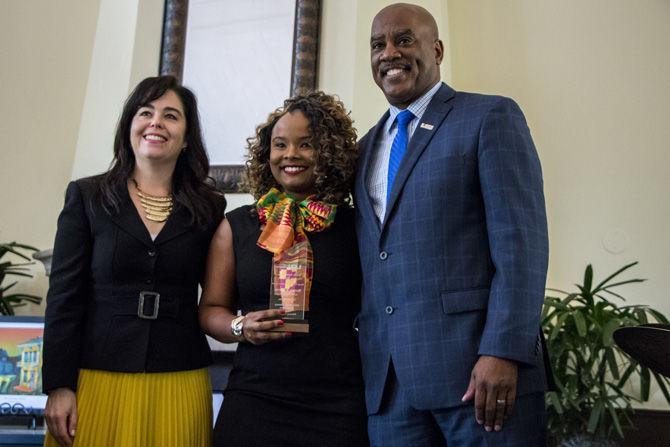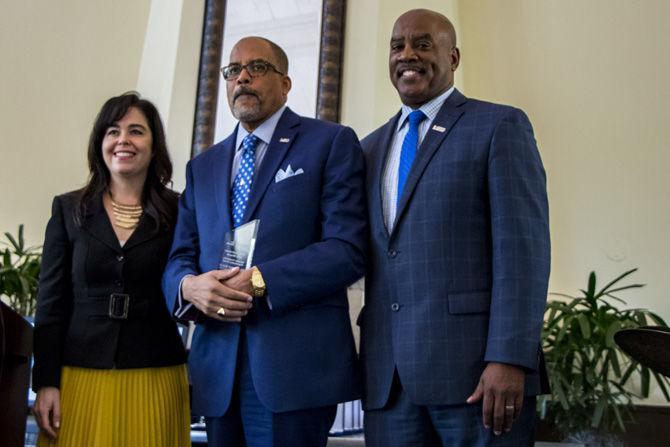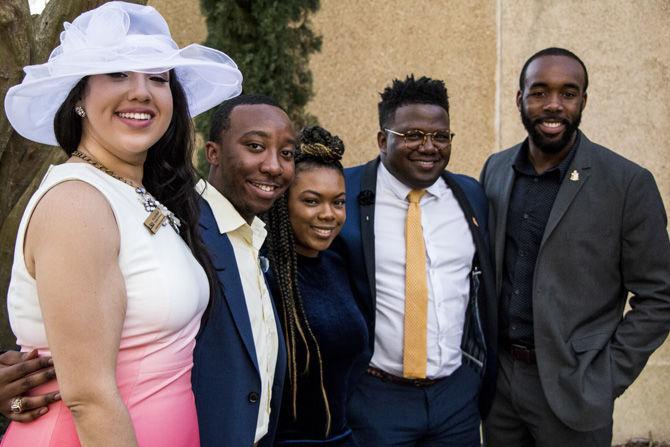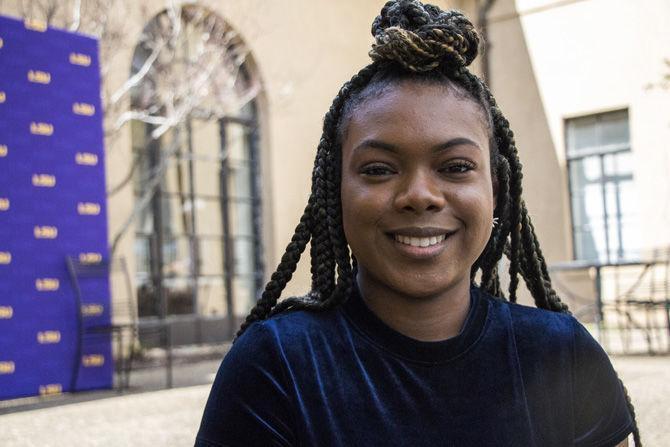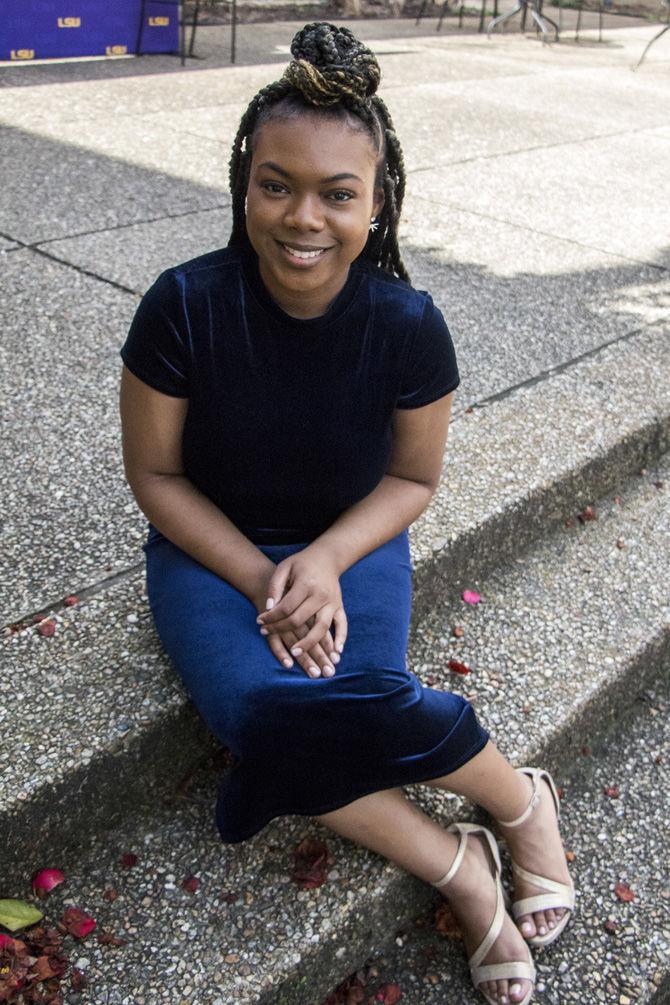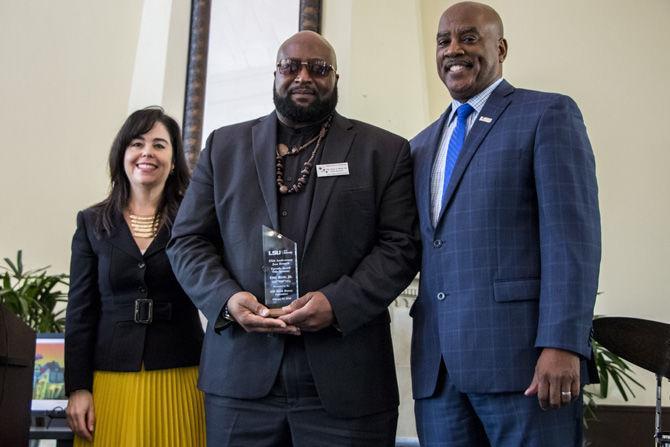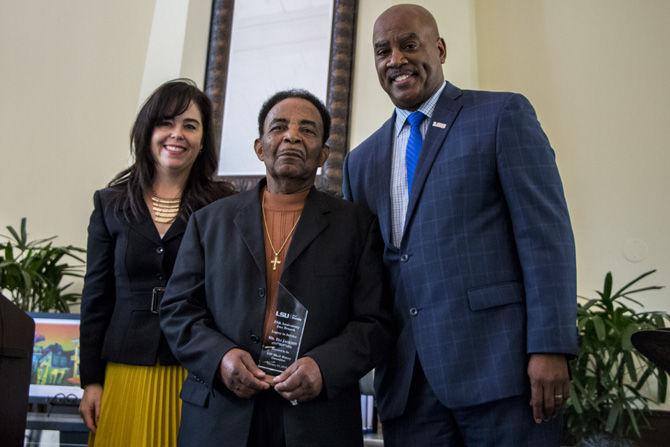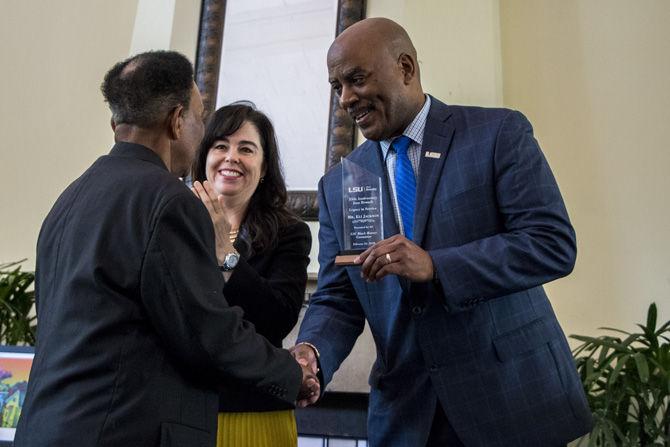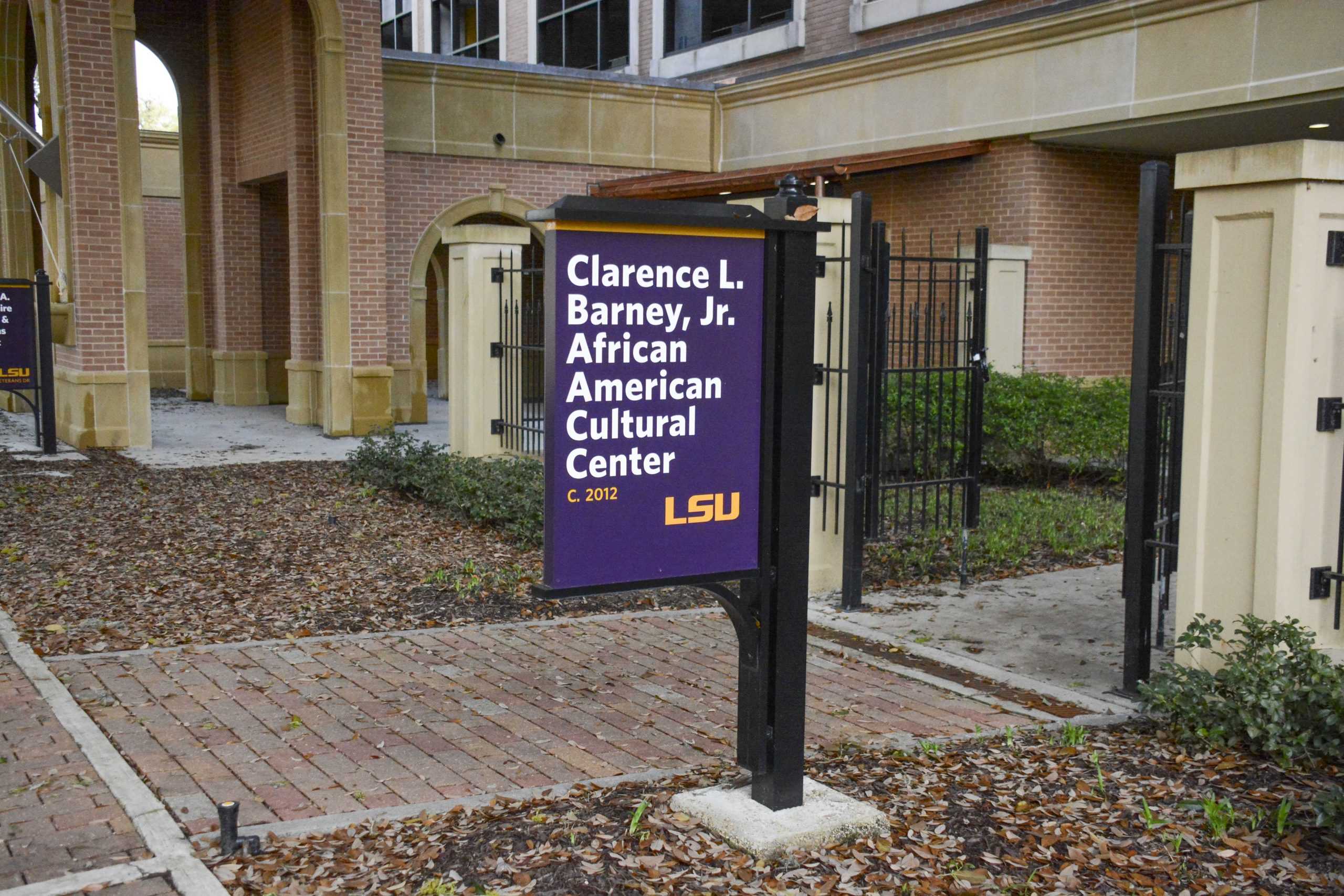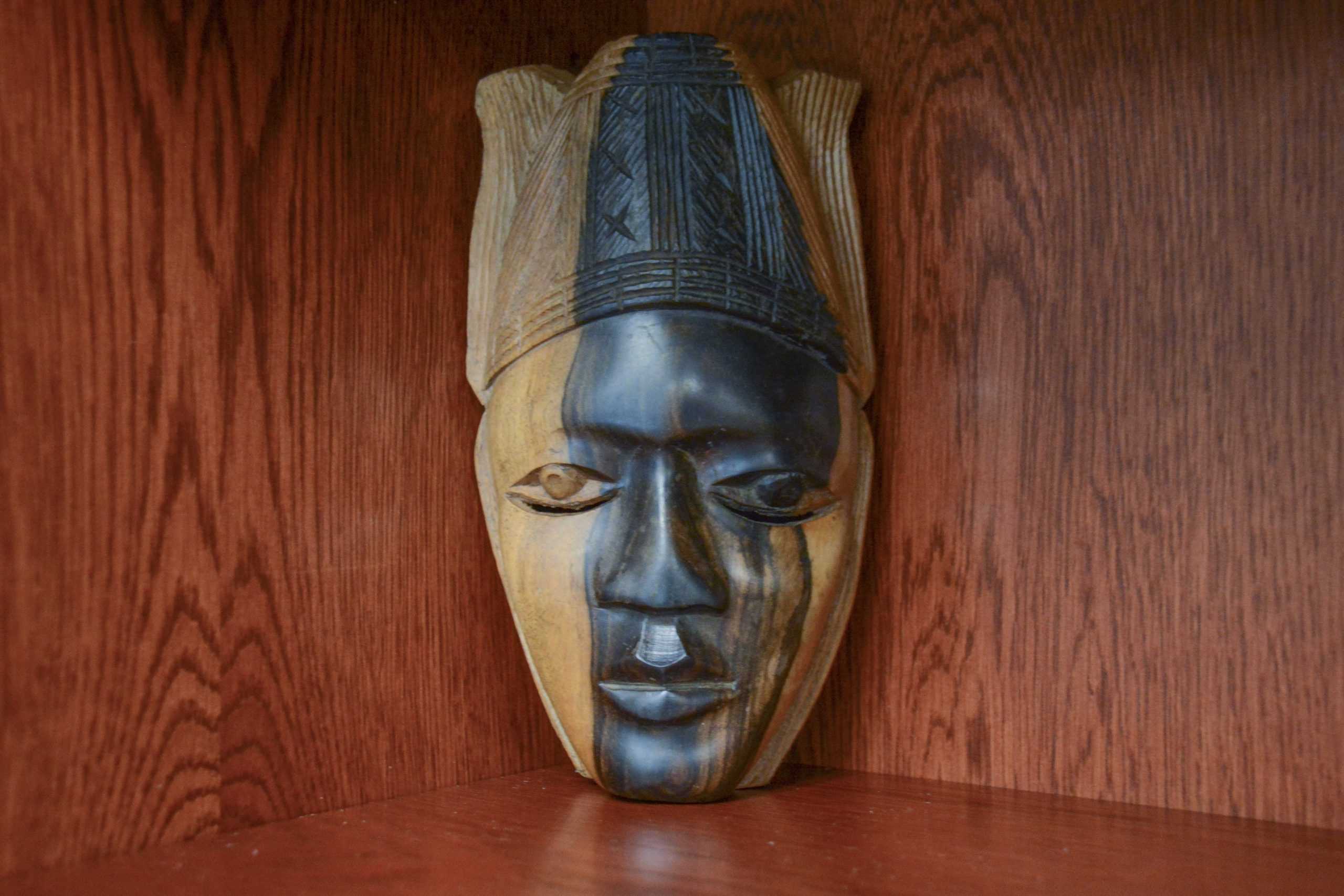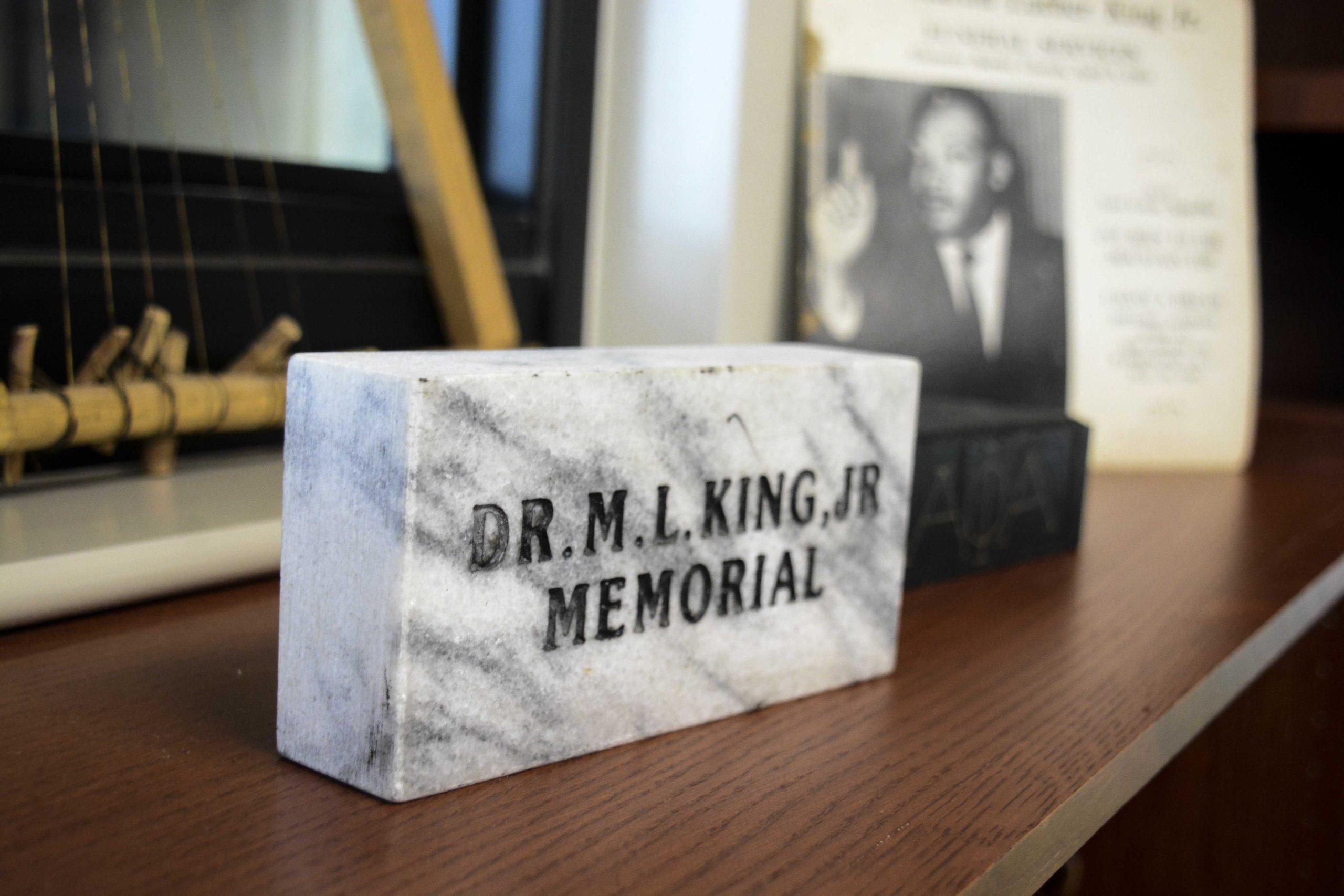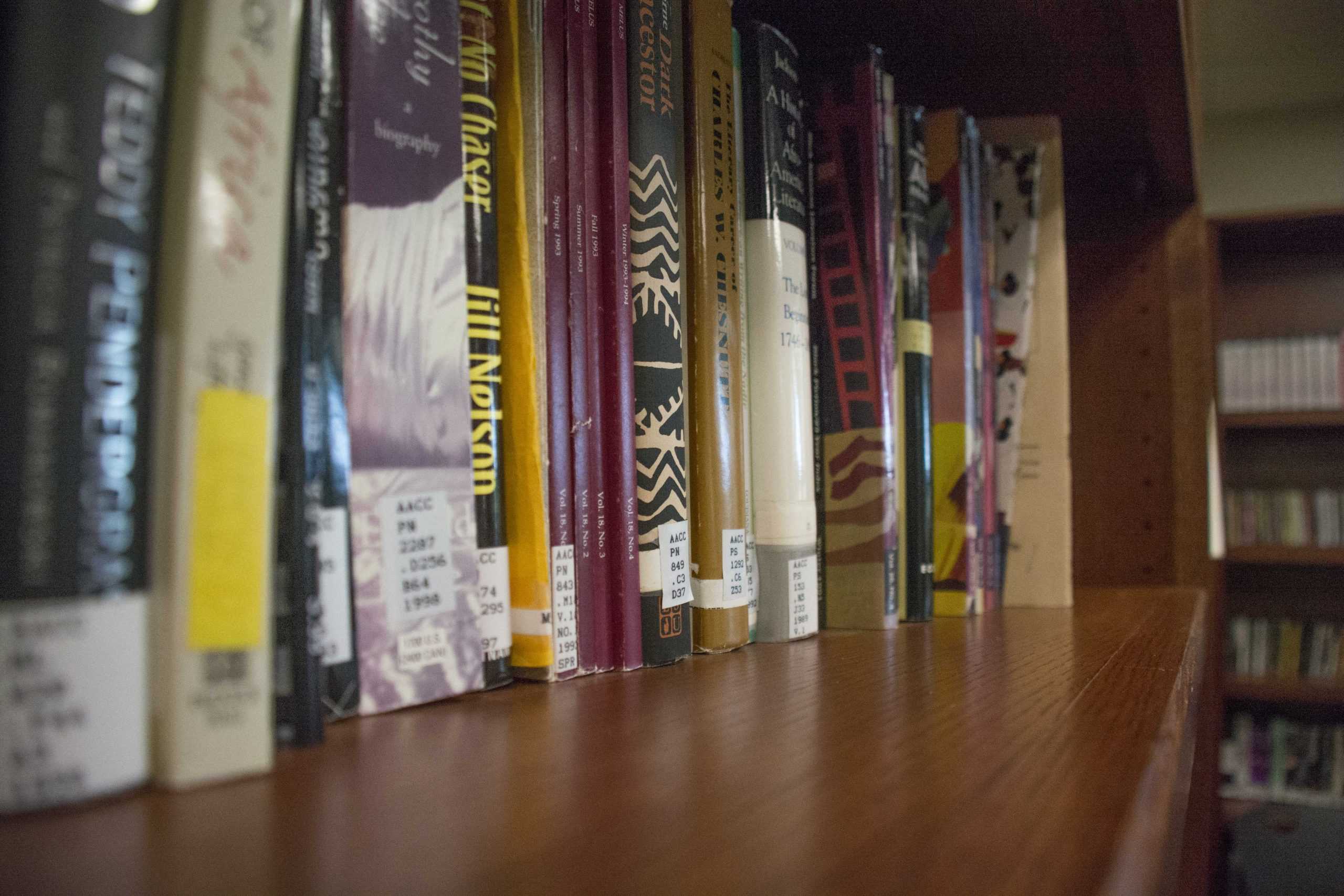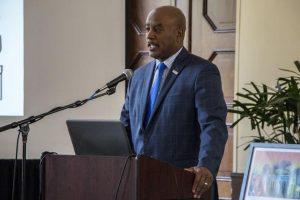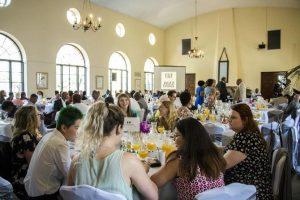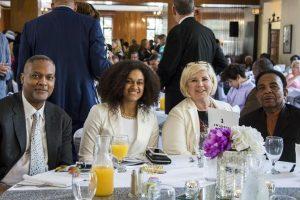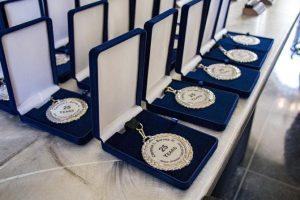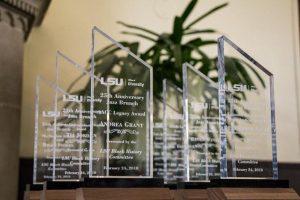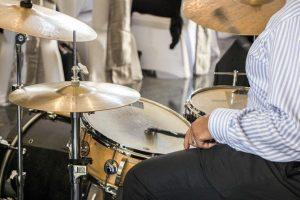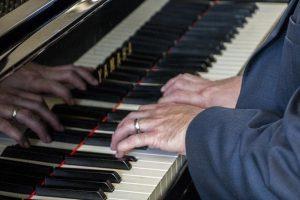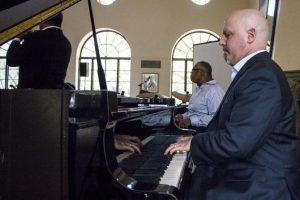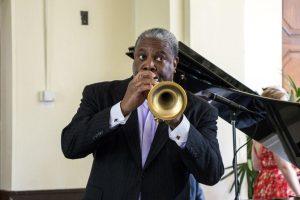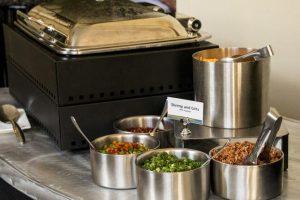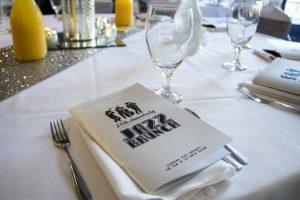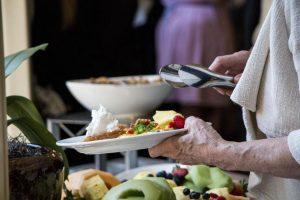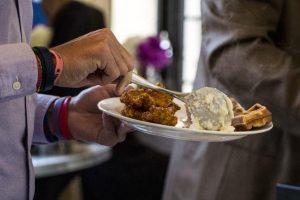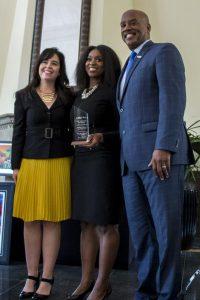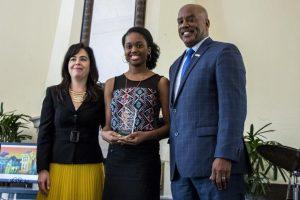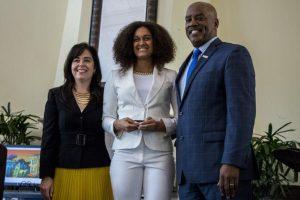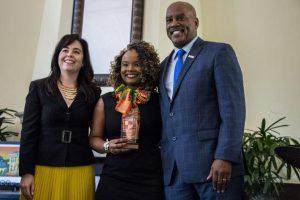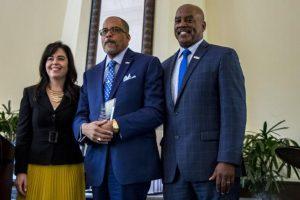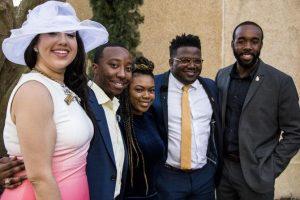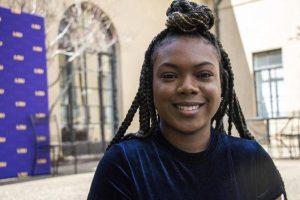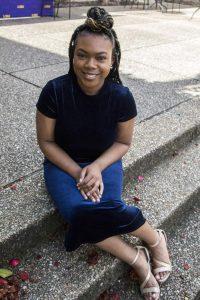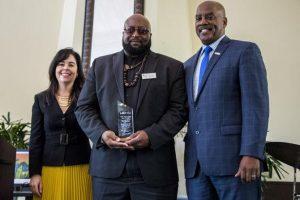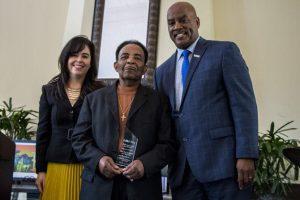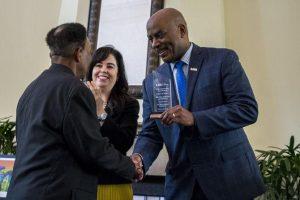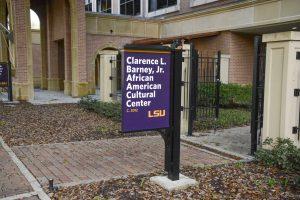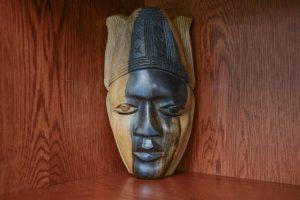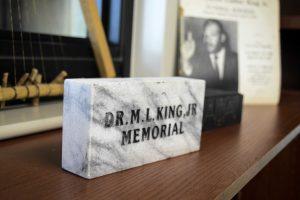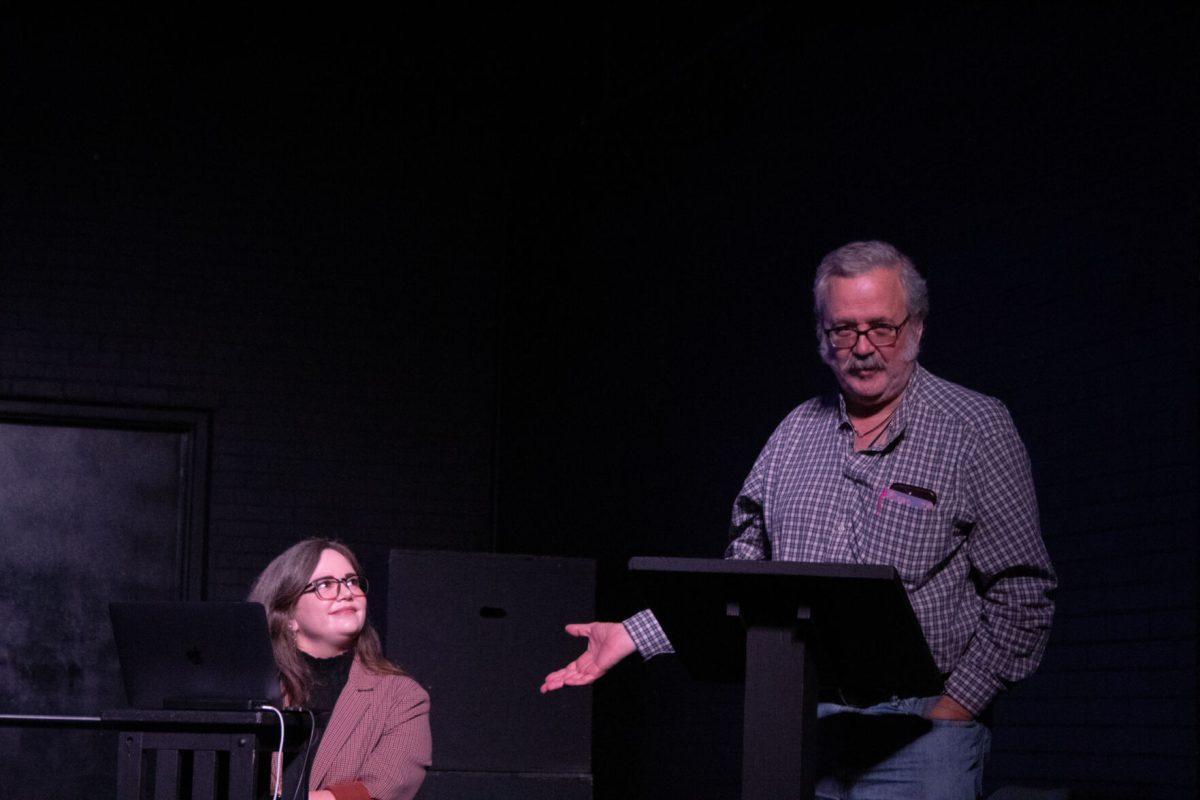This year’s Jazz Brunch, celebrating the 25th anniversary of the Clarence L. Barney Jr. African American Cultural Center, was perhaps the most successful year on record.
The Jazz Brunch lasted from 10:30 a.m. to 1 p.m. on Feb. 24., at the LSU Club at Union Square. The LSU Black History Month Student Committee hosted the bunch and featured the jazz band George Bell and Friends. The event honored the accomplishments of 26 groundbreaking African-American alumni and current students for the impact they made on the University and its surrounding community. Emmy Hicks, assistant director of development in the LSU Office of Diversity, said the event’s turnout was surprisingly large.
“This year’s was the best year we’ve had so far,” Hicks said. “It was completely sold out. We’ve had to move to a bigger venue, and we had a waiting list to get in. So it’s been a very, very special year.”
The 2018 Jazz Brunch awarded Distinction in Diversity Honors, given to members of the University’s community who have exemplified a commitment to leadership and inclusiveness. These honors will become a regular feature at the Jazz Brunch, celebrating a new class of honorees every year.
This year’s honorees included legendary figures in the University’s history, such as Renee Myer, the first African-American female crowned LSU homecoming queen; John Butler, the first African-American member of the Tiger Band; and Carolyn Collins, the first African-American dean of an academic college. Every person honored was a trailblazer for the campus’ African-American community.
D’Errah Scott, recipient of the LSU NAACP 2018 Morgan D. Wells Courage award and co-chair for the 2017-18 Black History Month Student Committee, as well as a junior marketing major, reflected on the significance of the Jazz Brunch.
“It’s very nice to have a chance to just kinda sit back and honor those who came before us and paved the way for this to happen,” Scott said. “It’s very nice to take the time out to relish one another and get to know people who normally I’d only dream of getting to meet — the first African-American person to graduate from here, the first athlete — the things you hear about in class.”
The event ended with all attendants forming a second line to dance their way out. Hicks reiterated the cultural significance of the event.
“The Jazz Brunch is a celebration of the accomplishments of the Clarence L. Barney African American Cultural Center,” Hicks said. “It’s a time where we all come together and celebrate the achievements of the African-American community and also you know, talk about how we can move forward.”
John Wilson, the co-chair for the Black Male Leadership Initiative and winner of the LSU NAACP 2018 Afro Activism award, explained the importance of the center and the resources they provide.
“I think it’s great for us to have a place we can come to, a place we can call our own. Especially on LSU’s campus, it’s kind of hard to find yourself,” Wilson said. “Especially people like me are hard to find. Just already in class I’m probably one of-one black male [in] my major anyway, so it’s good to see multiple people like me striving to try to find something to do, to be successful.”
Depending on the week, around 50 to 200 people visit the center. Some of these visitors aren’t University students; middle school and high school groups from nearby areas visit the center. Evante Topp, assistant director for African American Student Affairs said that it helps reassure those who have qualms about attending a majority-white university.
“One of the concerns, of course, and typically what we hear from middle schoolers and high schoolers who potentially are interested in LSU, is ‘Will I fit in?’” Topp said. “And so when people are trying to bring them here to LSU, they want to bring them to the cultural center because they see the things that we do to make sure they feel comfortable, supported.”
Since the University is majority-white, with African-Americans only making up around 12 percent of the student body, Topp said, incoming minority students can feel alone and pressured.
“[For] a lot of people, this is their first experience potentially in a majority space,” Topp said. “Some people do come from majority-black places, and this switch to LSU, where you’re the minority and you feel it — that’s a transition a lot of students feel.”
Although Black History month is almost over, the center will remain focused on strengthening and bettering the African American experience on campus, and continuing the legacy of the community. The center is trying to ease this transition by strengthening the African-American community, reaching out to all those with different backgrounds, holding conversations with black Americans about what the African-American experience is like and gathering together African Americans with different backgrounds, giving those who have never been around other black Americans a sense of community.
“We want to see a lot of alumni support. For the center, for them to come back and honor a lot of firsts, for them to come back and see where LSU is now, and see how far the center has grown, it was a beautiful moment,” Topp said. “So we really try to highlight generational success here at LSU, in the African-American community, to bring back people who were the first and then also honoring and showing our new African American talent here at LSU.”
Students seem to share the same vision for the future of the CLBAACC, hoping for greater outreach and to spread awareness of the resources available.
“I would like for African-American students to be more knowledgeable and acquainted with the African American Center,” Wilson said. “A lot of students— like a lot of our friends — they’re juniors, seniors, and they have no clue that we have a center.”
-
Vice provost for diversity and chief diversity officer Dr. Dereck J. Rovaris speaks at the Clarence L. Barney, Jr. African American Cultural Center (AACC) Jazz Brunch on Saturday, Feb. 24, 2018, in the LSU Club at Union Square.
-
The annual Clarence L. Barney, Jr. African American Cultural Center (AACC) Jazz Brunch is held on Saturday, Feb. 24, 2018, in the LSU Club at Union Square.
-
Members of the “Awardees” table sit down to visit at the Clarence L. Barney, Jr. African American Cultural Center (AACC) Jazz Brunch on Saturday, Feb. 24, 2018, in the LSU Club at Union Square.
-
Honorable medals sit on a table at the Clarence L. Barney, Jr. African American Cultural Center (AACC) Jazz Brunch on Saturday, Feb. 24, 2018, in the LSU Club at Union Square.
-
Awards sit on a table at the Clarence L. Barney, Jr. African American Cultural Center (AACC) Jazz Brunch on Saturday, Feb. 24, 2018, in the LSU Club at Union Square.
-
Herman Jackson plays drum set at the Clarence L. Barney, Jr. African American Cultural Center (AACC) Jazz Brunch on Saturday, Feb. 24, 2018, in the LSU Club at Union Square.
-
Andy Bourgeois plays the piano at the Clarence L. Barney, Jr. African American Cultural Center (AACC) Jazz Brunch on Saturday, Feb. 24, 2018, in the LSU Club at Union Square.
-
Andy Bourgeois plays the piano at the Clarence L. Barney, Jr. African American Cultural Center (AACC) Jazz Brunch on Saturday, Feb. 24, 2018, in the LSU Club at Union Square.
-
George Bell plays the trumpet at the Clarence L. Barney, Jr. African American Cultural Center (AACC) Jazz Brunch on Saturday, Feb. 24, 2018, in the LSU Club at Union Square.
-
Coffee mugs sit ready to be grabbed at the Clarence L. Barney, Jr. African American Cultural Center (AACC) Jazz Brunch on Saturday, Feb. 24, 2018, in the LSU Club at Union Square.
-
A shrimp and grits buffet is set up at the Clarence L. Barney, Jr. African American Cultural Center (AACC) Jazz Brunch on Saturday, Feb. 24, 2018, in the LSU Club at Union Square.
-
Cinnamon roll bread pudding bites sit on a table at the Clarence L. Barney, Jr. African American Cultural Center (AACC) Jazz Brunch on Saturday, Feb. 24, 2018, in the LSU Club at Union Square.
-
Smoked salmon mousse bites sit on a table at the Clarence L. Barney, Jr. African American Cultural Center (AACC) Jazz Brunch on Saturday, Feb. 24, 2018, in the LSU Club at Union Square.
-
A program sits on a table at the Clarence L. Barney, Jr. African American Cultural Center (AACC) Jazz Brunch on Saturday, Feb. 24, 2018, in the LSU Club at Union Square.
-
Delicious food is served at the Clarence L. Barney, Jr. African American Cultural Center (AACC) Jazz Brunch on Saturday, Feb. 24, 2018, in the LSU Club at Union Square.
-
Delicious food is served at the Clarence L. Barney, Jr. African American Cultural Center (AACC) Jazz Brunch on Saturday, Feb. 24, 2018, in the LSU Club at Union Square.
-
(from left to right) Senior vice president of principal gifts and CFRE Ann Marie Marmande helps present the CBAACC Legacy Award to director of multicultural affairs Andrea E. Grant alongside vice provost for diversity and chief diversity officer Dr. Dereck J. Rovaris at the Clarence L. Barney, Jr. African American Cultural Center (AACC) Jazz Brunch on Saturday, Feb. 24, 2018, in the LSU Club at Union Square.
-
(from left to right) Senior vice president of principal gifts and CFRE Ann Marie Marmande helps present the Umoja Undergraduate Student Award to English junior Tia D. Jordan alongside vice provost for diversity and chief diversity officer Dr. Dereck J. Rovaris at the Clarence L. Barney, Jr. African American Cultural Center (AACC) Jazz Brunch on Saturday, Feb. 24, 2018, in the LSU Club at Union Square.
-
(from left to right) Senior vice president of principal gifts and CFRE Ann Marie Marmande helps present the Nia Student Athlete Award to English junior and volleyball outside hitter Milan S. Stokes (17) alongside vice provost for diversity and chief diversity officer Dr. Dereck J. Rovaris at the Clarence L. Barney, Jr. African American Cultural Center (AACC) Jazz Brunch on Saturday, Feb. 24, 2018, in the LSU Club at Union Square.
-
(from left to right) Senior vice president of principal gifts and CFRE Ann Marie Marmande helps present the Imani Graduate Student Award to graduate social work student Raven A. Winding alongside vice provost for diversity and chief diversity officer Dr. Dereck J. Rovaris at the Clarence L. Barney, Jr. African American Cultural Center (AACC) Jazz Brunch on Saturday, Feb. 24, 2018, in the LSU Club at Union Square.
-
(from left to right) Senior vice president of principal gifts and CFRE Ann Marie Marmande helps present the Kuumba Community Service Award to Rev. Dr. Herman Kelly of Bethel Ame Church alongside vice provost for diversity and chief diversity officer Dr. Dereck J. Rovaris at the Clarence L. Barney, Jr. African American Cultural Center (AACC) Jazz Brunch on Saturday, Feb. 24, 2018, in the LSU Club at Union Square.
-
LSU students volunteer to be a part of the Clarence L. Barney, Jr. African American Cultural Center (AACC) Jazz Brunch on Saturday, Feb. 24, 2018, in the LSU Club at Union Square.
-
Marketing junior and 2017-2018 Black History Month Committee co-chair D’Errah “Dee” Scott speaks on behalf of the Clarence L. Barney, Jr. African American Cultural Center (AACC) Jazz Brunch on Saturday, Feb. 24, 2018, in the LSU Club at Union Square.
-
Marketing junior and 2017-2018 Black History Month Committee co-chair D’Errah “Dee” Scott speaks on behalf of the Clarence L. Barney, Jr. African American Cultural Center (AACC) Jazz Brunch on Saturday, Feb. 24, 2018, in the LSU Club at Union Square.
-
(from left to right) Senior vice president of principal gifts and CFRE Ann Marie Marmande helps present the Upendo Award to San Francisco 49ers safety Eric Reid (35) alongside vice provost for diversity and chief diversity officer Dr. Dereck J. Rovaris at the Clarence L. Barney, Jr. African American Cultural Center (AACC) Jazz Brunch on Saturday, Feb. 24, 2018, in the LSU Club at Union Square.
-
(from left to right) Senior vice president of principal gifts and CFRE Ann Marie Marmande helps present the Legacy of Service Award to Residential Life custodian Eli Jackson alongside vice provost for diversity and chief diversity officer Dr. Dereck J. Rovaris at the Clarence L. Barney, Jr. African American Cultural Center (AACC) Jazz Brunch on Saturday, Feb. 24, 2018, in the LSU Club at Union Square.
-
(from left to right) Senior vice president of principal gifts and CFRE Ann Marie Marmande helps present the Legacy of Service Award to Residential Life custodian Eli Jackson alongside vice provost for diversity and chief diversity officer Dr. Dereck J. Rovaris at the Clarence L. Barney, Jr. African American Cultural Center (AACC) Jazz Brunch on Saturday, Feb. 24, 2018, in the LSU Club at Union Square.
-
The Clarence L. Barney, Jr. African American Cultural Center stands on Monday, Feb. 26, 2018, on Veterans Drive.
-
African-American artifacts are displayed in the African American Cultural Center on Monday, Feb. 26, 2018, on Veterans Drive.
-
African-American artifacts are displayed in the African American Cultural Center on Monday, Feb. 26, 2018, on Veterans Drive.
-
Rows of books are displayed in the African American Cultural Center on Monday, Feb. 26, 2018, on Veterans Drive.




